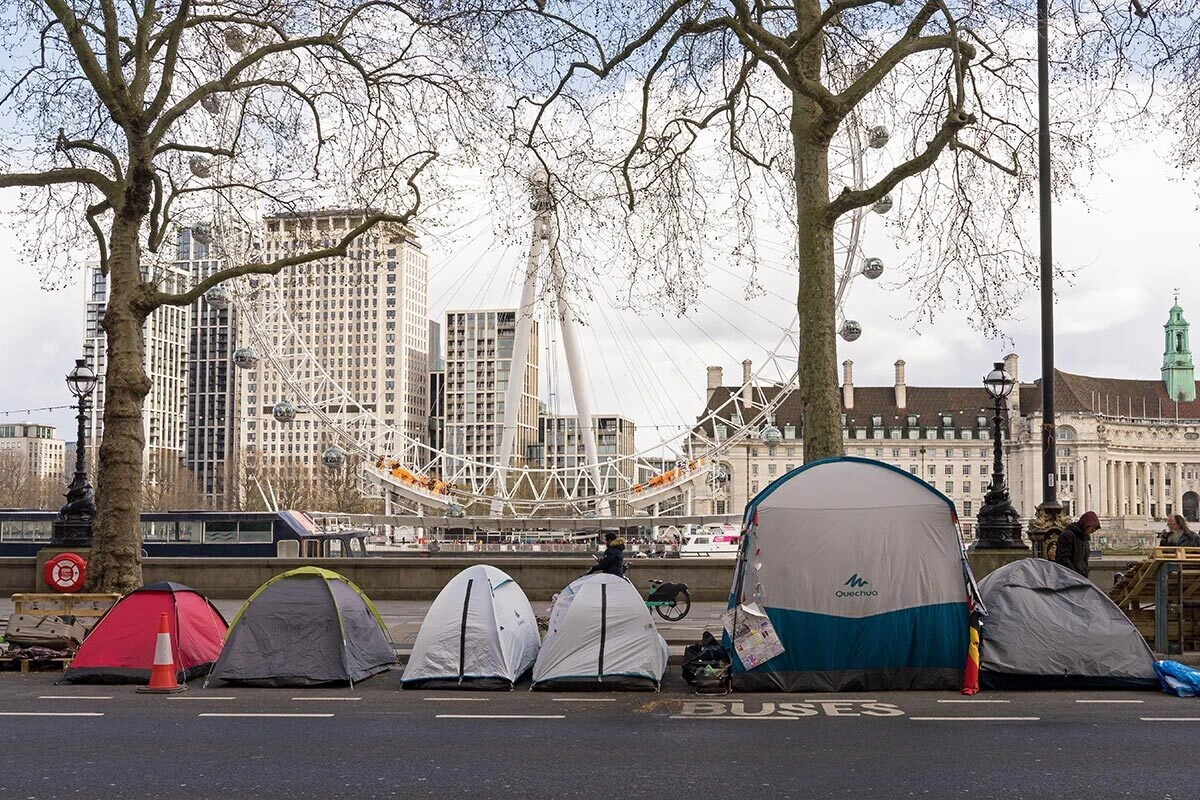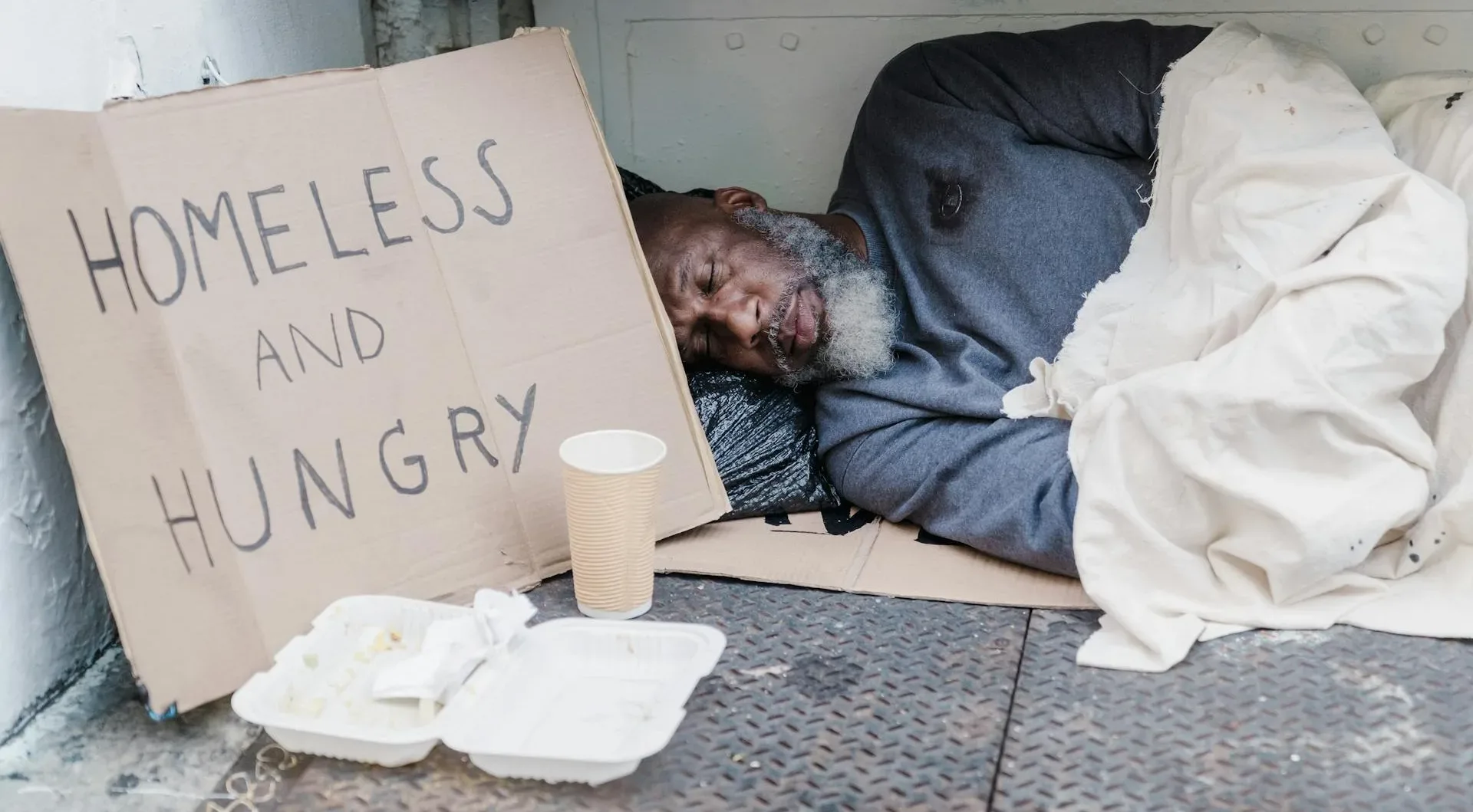Why Are Thousands Still Sleeping on London’s Streets in 2025?

Despite being one of the world’s wealthiest and most prosperous capitals, London continues to witness scenes of people sleeping rough, a daily reality that has become deeply embedded in the city’s routine. In a metropolis that draws investors and tourists from across the globe, the persistence of homelessness for thousands remains a stark contradiction.
What’s striking about this global hub is the enduring suffering of so many who are left without shelter.
Homelessness is no longer a marginal issue , it has become a structural crisis that lays bare the fragility of social safety nets and the growing disconnect between visible wealth and the hidden collapse of a fundamental right: housing.
In this report, we examine the scope of the crisis through numbers, explore its causes and consequences, and assess the efforts of both government and civil society. We also highlight how Arab and migrant communities are increasingly entangled in this equation — both as those impacted and as part of the response.
Shocking Numbers in a City of Wealth

- in autumn 2024, the Department for Levelling Up, Housing and Communities documented around 4,600 people sleeping rough on a single night in England — equivalent to the population of two entire villages walking the streets without shelter.
- Nearly 30% of those were in London alone, with official figures showing more than 1,300 people sleeping on the capital’s streets in one night.
- Over the course of the 2024–2025 financial year, more than 13,000 people slept rough in London — meaning that nearly one in every 47 residents of the city experienced homelessness.
Other Cities Also Deeply Affected

The crisis extends beyond the capital. Cities like Manchester, Birmingham, Slough, and Luton have all recorded high homelessness rates, with estimates suggesting one homeless person for every 50–60 people.
Globally, the United Nations estimates that over 330 million people lack stable housing, with hundreds of millions more living in unsafe or severely overcrowded conditions.
Why Are People Becoming Homeless in London?

Homelessness in the British capital stems from a complex web of factors, including:
- Sudden loss of employment or income, made worse by skyrocketing rents.
- Family breakdown, especially among young people and refugees who lack community support networks.
- Release from prison without any secure housing in place.
- Asylum policies — notably the “Move-on” system — which ends accommodation support just 28 days after a person’s asylum status is resolved, leaving many with nowhere to go.
- Mental health challenges or addiction, which can make it extremely difficult to secure housing or access support services.
A Costly Crisis and Uneven Solutions

London councils are spending more than £4 million per day on temporary accommodation, according to documented local reports.
A £170 million plan under the “Housing First” policy was launched to provide permanent housing first, followed by wraparound social and psychological support. But human rights groups have raised doubts about whether this level of funding is adequate to meet the scale of the crisis.
The British Parliament has recently repealed laws criminalizing rough sleeping — a move seen by many as long overdue.
The government has also temporarily extended post-asylum housing support from 28 to 56 days — a measure approved by a parliamentary committee. Still, homelessness organizations such as Shelter and Homeless Link stress that these are only “first steps” that fall far short of solving the underlying problem.
A Structural Crisis, Not a Temporary Condition

Homelessness in London is no longer a temporary emergency. It’s a structural issue that now affects nearly 1% of the city’s population every year.
Despite the capital’s financial and political weight, the solutions presented so far remain fragmented and lacking in cohesion.
The absence of an effective public housing policy — combined with mounting pressure on society’s most vulnerable — makes it difficult to envision an end to this crisis any time soon.
The answer lies not in funding alone, but in political will, integrated efforts between the state and civil society, and cultural change that reinforces the idea of housing as a basic human right — not a privilege.
In this context, there is an urgent need to amplify the voices of those directly affected — including migrants and refugees — and involve them in shaping housing policies that reflect their lived realities, rather than excluding them from the conversation.
Also read :
- Migrants Build Britain… While Politicians Trade at Their Expense
- Immigration and asylum crisis humanitarian or political file?
- Asylum Seekers Homeless in the Cold Due to a Legal Loophole
ShortURL ⬇


